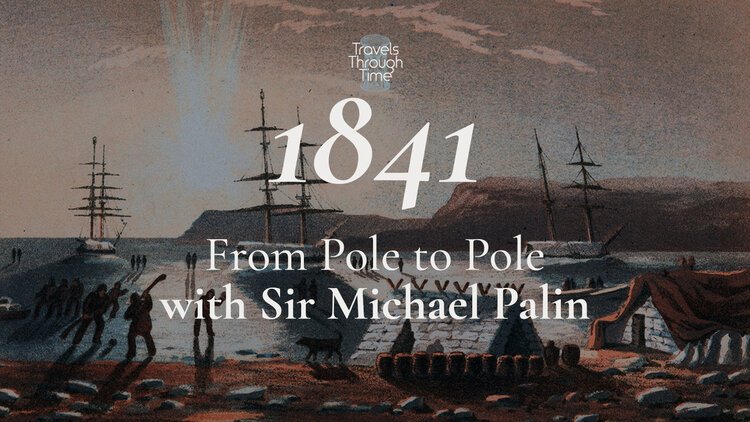The Struggle to Rule the Ocean: David Bosco (1982)
David Bosco, author of The Poseidon Project, The Struggle to Govern the World’s Oceans
In our connected, globalised world, the question of who governs the oceans is increasingly urgent. As mining capabilities develop, the seabed becomes more and more valuable, just at the moment when environmental concerns are at an all-time high. Meanwhile our reliance on the seamless flow of shipping lanes was highlighted when the Ever Given lodged itself in the Suez Canal last year, blocking the major route between the Far East to the Mediterranean and causing widespread disruption.
For Hugo Grotius, the sixteenth century Dutch scholar who elaborated the ‘freedom of the seas’ concept which has influenced maritime governance ever since, the sea was an inexhaustible natural resource that should be open to all. Countries claiming sovereignty over vast areas of the oceans (for Grotius, Portugal’s claims were the focus) were obstructing the use of a space that should be a resource for all and a natural pathway between nations.
Things have changed dramatically in recent decades. On-board refrigeration and trawl devices have made it feasible for fishing fleets to travel thousands of miles from their home ports, spending months at sea and depleting fish stocks to the point of extinction. In 2018, 90 million tons of fish were taken from the oceans by an industry that employs 39 million people across the globe. Underwater drones and deep-sea technologies have made it possible for humans to control and exploit the oceans in ways Grotius and his contemporaries could not have imagined. In parts of the world, the sea has become an arena of political tension as countries attempt to increase their maritime status, laying claim to strategic islands, extending the area of coastal sea they control, and asserting power over important trade routes.
David Bosco discusses all these fascinating issues, and many more besides, in The Poseidon Project, The Struggle to Govern the World’s Oceans. He charts the efforts of international organisations to create consensus and establish a structure of globally recognised rules for the oceans. He takes us back to 1982, a fraught year on the high seas when Britain was battling Argentina in the South Atlantic for control of the Falkland Islands and the waters around them. In the Arctic, a British adventurer had just completed the famous Northwest Passage. He did so just as disagreement between Canada and the United States over the legal status of the Passage became acute. Meanwhile, final preparations were underway for the signing of the United Nations Convention on the Law of the Sea. But there was a cloud over the celebrations—the world’s leading maritime power, the United States, had decided not to sign.
Click here to order David Bosco's book The Poseidon Project, The Struggle to Govern the World’s Oceans from an independent bookseller.
*** Listen to the podcast ***
Show Notes
Scene One: January 1, 1982, The North Pole. Sir Ranulph Fiennes and his wife Virginia Fiennes celebrated the New Year with the rest of their expedition at a snow-covered base camp.
Scene Two: June 8, 1982. The South Atlantic Ocean, approximately 500 miles northeast of the Falkland Islands. An aircraft bombs the tanker Hercules during the war between Argentina and the United Kingdom for control of the Falklands.
Scene Three: December 10, 1982. Rose Hall Hotel, Montego Bay, Jamaica. The site for the signing of the new United Nations Convention on the Law of the Sea.
Memento: The signed treaty from the convention in Montego Bay.
People/Social
Presenter: Violet Moller
Guest: David Bosco
Production: Maria Nolan
Podcast partner: Unseen Histories
Follow us on Twitter: @tttpodcast_
Or on Facebook
See where 1982 fits on our Timeline
About David Bosco
David Bosco is the associate professor of International Studies at Indiana University's Hamilton Lugar School of Global and International Studies.
Featured Images
Listen on YouTube
Complementary episodes
From Pole to Pole: Sir Michael Palin (1841-8)
Michael Palin guides us back to the early years of Queen Victoria’s reign. The 1840s comes at the tail end of what is known in the West as the Age of Exploration, usually considered to have begun with Christopher Colombus’s voyage across the Atlantic to the Americas in 1492.
Samuel Pepys and the Strange Wrecking of the Gloucester: Nigel Pickford (1682)
On the morning of the 6 May 1682, in unremarkable weather, the Gloucester, a 50-gun frigate of the Royal Navy, collided with a sandbank off the Norfolk coast. The wreck that followed was no ordinary one. For aboard was James, Duke of York, heir to the English throne and a glittering array of fellow travellers. Within hours of the collision, two hundred people were dead. Today we travel back to the late seventeenth century and to the Norfolk coast to witness that dramatic shipwreck. It was an event that very nearly changed the course of English history.
Wolfson History Prize Special: Professor David Abulafia (1415)
In this episode of Travels Through Time we are taken on an invigorating tour of the ports, coasts and oceans of the world with Professor David Abulafia – winner of the 2020 Wolfson History Prize for his book, The Boundless Sea.









